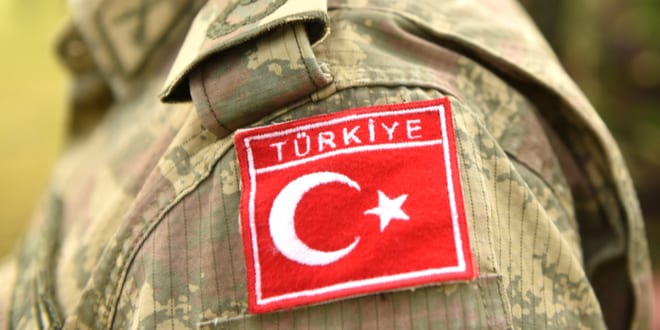In a significant change, Turkey and Saudi Arabia are seeking to renew ties. The presidential visit from Turkey went well last week, and Ankara is speaking of new brotherly ties.
Previously, Turkey sought a higher profile over global Islamic sensibilities, while Riyadh was moderating. Turkish President Recep Tayyip Erdoğan said “increased cooperation with Saudi Arabia in health, energy, food security, agricultural technologies, the defense industry, and finance is in the common interest,” the pro-government newspaper Daily Sabah reported.
Senior Emirati official Anwar Gargash lauded these steps: “The visits of Turkish President Recep Tayyip Erdoğan to the UAE and sisterly Saudi Arabia, and the adoption of the approach of communication and rapprochement, is a positive step for the benefit of the region as a whole,” the National news site reported.
But that leads to a question: Why didn’t Ankara simply not harm relations with all these countries in the first place?
Turkey was on an aggressive binge during the Trump years and is now shifting to reconciliation. It appears Ankara believed it had a blank check from the Trump administration to harass and seek to intimidate and threaten Israel, Greece, Armenia, the UAE, Egypt, Saudi Arabia and other countries. With Biden in power, Ankara is trying to go back to the former policy of “zero problems with our neighbors.”
That’s not the only thing taking place though. Saudi Arabia’s seven-year intervention in Yemen has also been difficult. Iran has mobilized the Houthis to attack not only Saudi Arabia but also the UAE.
Iran is also mobilizing militias in Iraq. Those militias threaten Turkish bases in Iraq. Over the weekend, a rocket was fired at US forces at a facility at Ain al-Assad base.
What this means is that the Gulf states understand they want stability. Turkey can help by changing its support from extremists to supporting other groups. Perhaps, Ankara can tone down rhetoric and policies regarding Libya, the Eastern Mediterranean and also end its collaboration with Iran.
It’s not clear what Turkey might do next. Ankara is in a difficult place because it is buying Russia’s S-400 system and also supplies Ukraine with Bayraktar drones.
More might be happening as well
As the US and the West concentrate on Ukraine, it is up to regional powers to manage affairs closer to home. Although recent conflicts appear to be winding down, Iran’s failure to obtain a nuclear deal could lead it to lash out against the US.
UAE relations with Pakistan are important. Pakistani leader Imran Khan’s loss of power leaves a potential vacuum. Neither the attack by Baloch militants against Chinese residents in Pakistan nor the rise of attacks on Shi’ites in Afghanistan bodes well.
Because these countries have major stakes from Pakistan to Yemen, recent moves by Turkey, the UAE, and Saudi Arabia will have long-term repercussions.
Israel is an added issue because it is improving ties with the Gulf and Morocco. However, it remains to be seen if Turkey-Israel reconciliation will be cemented.
The same question pertains to Ankara’s ties with the UAE and Saudi Arabia. Symbolic visits are important, but will there be a follow-up?
Reprinted with author’s permission from Middle East Forum




